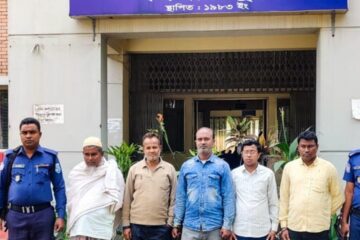After the Supreme Court, lower courts have also begun preparing daily e-dockets to help litigants track case updates.
But while orders are now available online, litigants say digital access has not reduced harassment.
In the Supreme Court, for instance, a single copy of an order often requires passing through more than a dozen desks — and, in many cases, bribes.
The persistent red tape and corruption have renewed calls for an e-file tracking system to enhance accountability and transparency across the judiciary.
Experts say such a system would help citizens monitor case progress in real time, improve efficiency, and bring Bangladesh’s courts closer to international standards.
Judicial reforms under way
Chief Justice Dr Syed Refaat Ahmed has already initiated a reform roadmap aimed at modernizing court operations.
The plan includes setting up a separate judicial secretariat, activating the Supreme Judicial Council, and enforcing anti-corruption directives.
On September 18, 2024, the Chief Justice issued 12 instructions to Supreme Court staff to ensure transparency, accountability, and zero tolerance for financial transactions.
As part of the reforms, bail orders can now be sent directly to prisons online.
Law Adviser Dr Asif Nazrul said during an event on October 14: “Earlier, a person had to go through 12 steps to get bail, often involving money and harassment. Now, the order goes straight to the prison with a single click.”
Litigants still face hurdles
However, litigants argue that online order delivery alone cannot prevent corruption.
Abul Bashar Patwari, whose brother’s bail took 11 days, said: “We had to make repeated calls and pay intermediaries to get the copy. With an e-file tracking system, we could check the case status ourselves instead of chasing clerks for updates.”



